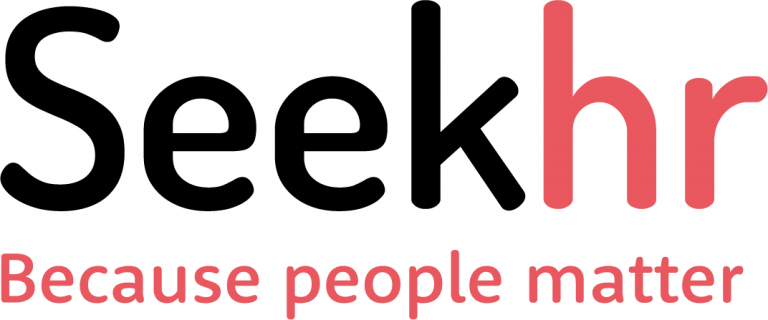Our route to conception wasn’t an easy one.
But instead of holding onto that journey, I focus on what it has taught me. The birth of a child is truly a miracle. And with that knowledge, our gratitude forever heightened. The moment your child is born, a part of you is also born. A part that didn’t exist before. It really is nothing short of magic.
Parenting brings with it joys that are hard to put into words.
The real joy of raising a child comes not just from the privilege of being a parent, but from the personal transformation you experience through selfless love.
But parenting is no walk in the park.
It’s bloody hard work! Do not be fooled by anyone who appears to breeze through it.
The transition of new mum to business owner, is likely the biggest one I have ever had to make. Baby steps. Give myself time. Give myself room to adjust.
I want to show my daughter that nothing is out of reach for her dreams. I would like my daughter to grow up seeing a mother who’s carving a place for herself in the business world and who, to the same extent as her husband, is balancing work with family and home demands.
What made the process easier for me was knowing that I was returning to work that I love and to people who leave me energised.
And while I’m far from having things worked out (In fact, the journey isn’t linear and just as a child evolves, so do the challenges) I have bagged myself a few learnings from my first month back.

- Establish your new routine ahead of time
- Consider a phased return
- Set expectations with your colleagues
- Lobby flexibility
- Consider life and career goals post-baby – they may not be the same as before
- Recognise what you take back into the workplace with you
The last point is key.
It’s normal to suffer a bout of low confidence as you head back to the office. I spent a lot of time thinking about the ways in which motherhood was going to make me a better leader. How my newfound strength, resilience and above all, empathy, could give me an advantage.
There’s this cultural narrative out there that work is a regretful thing for mothers, but honestly, many of us are lucky enough to love what we do. And that’s something to be celebrated!
What’s holding women back?
The glass ceiling refers to discriminatory barriers that prevent women from rising to positions of power and advancing simply because they are women. We face many barriers: socially, systematically, self-imposed.
As many women continue to retreat from the pursuit of that promotion, businesses and governments need to create policies that support their return. Only when this happens, can we change the dialogue with ourselves.
At a governmental level, our expensive childcare system oppresses women. It keeps us in our homes. It stops us from being able to work. It stops us from being able to earn our own income. It’s the anti-feminist action of our government.
We need legislative change. We need governments to really care about this, step in and act. To be prepared to experiment. To be prepared to be radical. To be prepared to spend some money on things that will make all the difference.
How often have you heard ‘childcare is so expensive, it’s not worth going back to work’? Recent figures from the Office for National Statistics show that the number of women not working to look after children has risen by 5% in the past year alone. In the last year alone!
The UK has one of the most expensive childcare systems in the developed world, and the cost-of-living crisis is exacerbating the issue. Childcare can be more expensive than rent or a mortgage, making returning to work impossible and devastating women’s economic participation.
I am one of the lucky ones.

For some women, the ability to work flexibly is the choice between holding down a job or being forced out of the workplace altogether.
The UK could learn a few lessons from Luxembourg. Their government provides up to 60 hours free childcare to all children aged between one and four. Just imagine.
However, the option of extending 30 hours of free childcare to one- and two-year-olds in England at the spring budget has been rejected on cost grounds. The plan would cost about £6bn. It is estimated that getting women back into the workplace would contribute over £48bn a year to the UK’s economy. I’ll just let that sink in.
What can businesses do?
The business case for employers to provide ‘family friendly’ benefits is indisputable. Ask any CEO, and their number one challenge will be hiring and retaining talent, however, little is heard about support dedicated to helping parents return to work.
The past few years have shone a brighter light on women’s experiences at work.: We find ourselves in the depths of a “she-cession”, where one in three women are looking to downshift their careers or leave the workforce entirely, joining the millions of women who have already exited these past few years. We’re moving backwards.
Smart leaders will invest in reversing this by making structural changes in how we work. Emphasising flexibility. Only when we build a more equitable system, will women not be forced to make a choice.
Gloria Steinem said that if you think about the human race as a bird with two wings, you understand that if one is damaged and broken, no one can fly.
So, can women really have it all? The jury is still out.
Our first steps towards equity
Flexible & part-time working
Mat pay – First two months 100% of Salary based on previous year’s total earnings
Month 3 – 6 – 100% of Salary based on basic salary
Month 7 – 10 – 50% of Salary based on basic salary
Pat pay 1 month – 100% pay based on base salary
Pregnancy loss leave: Up to 2 months leave on full pay.
Abortion Leave: A minimum of two weeks’ fully paid leave, including partners.




